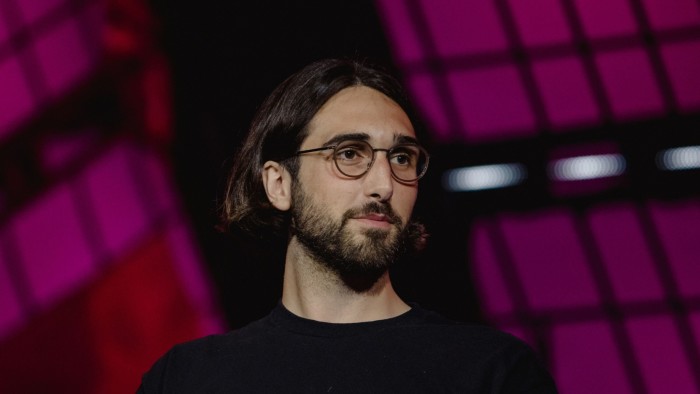Stay informed with free updates
Simply sign up to the Artificial intelligence myFT Digest — delivered directly to your inbox.
Artificial intelligence start-up Cohere has raised $500mn, and hired former executives from Uber and Meta, as it positions itself as a more secure alternative to rivals such as OpenAI and Anthropic for business customers.
The new funding round values the group, founded in 2019 by ex-Google scientists, at $6.8bn including the new cash, up from a $5.5bn valuation achieved last year.
The new investment was led by Radical Ventures and Inovia Capital, along with AMD Ventures, Nvidia, PSP Investments, Salesforce Ventures, and others.
Cohere also announced it has hired Joelle Pineau, a highly-regarded academic who led AI research at Meta until April this year, as its chief AI officer, and former Uber executive Francois Chadwick as chief financial officer.
Cohere competes with larger US rivals including OpenAI, Google and Elon Musk’s xAI to develop cutting-edge large language models, which underpin tools such as OpenAI’s ChatGPT chatbot.
Unlike these competitors, the Canadian group sells exclusively to businesses, training its model on their internal data and often running it on their premises rather than using external cloud computing services.
Cohere is counting on this strategy giving it an edge with companies in regulated industries — such as banking, telecoms or government services — for which security and compliance are paramount.
Cohere has recently signed or expanded deals with the Royal Bank of Canada, Fujitsu and LG as well as Oracle and Dell.
Aidan Gomez, co-founder and chief executive, said: “Trust and safety is the biggest factor for our customers. Privacy and security you cannot compromise on, you can’t go halfway.”
Like French rival Mistral, Cohere has benefited from concerns among businesses outside the US about relying exclusively on the largest AI companies, which are clustered in the Bay Area around San Francisco. That anxiety has increased as President Donald Trump takes a more combative stance towards traditional allies.
Gomez said: “Sovereignty in AI has been important for a very long time, these were discussions before any changes in US politics. But in the world we’re in today its becoming increasingly important.”
Cohere has doubled its annual recurring revenue — a measure of expected revenue from subscriptions favoured by fast-growing start-ups — to $100mn since the start of 2025. It is targeting $200mn by the end of the year, said people with knowledge of the company’s finances.
Gomez said customers are increasingly “rolling out [AI] to the entire company, rather than small test groups”.
The company recently launched North, a platform for AI agents, programmes that can independently perform online tasks based on user instructions. It claims the platform will give enterprises access to cutting-edge AI tools while keeping their data safe.
Cohere’s revenues are dwarfed by consumer-facing rivals, and the $1.3bn step up in its valuation is modest by comparison to some of these competitors.
OpenAI is targeting a $500bn valuation, up from $300bn, while Anthropic is in talks to roughly triple its valuation to $170bn.
But Cohere’s costs are substantially lower than rivals’, which are sinking tens of billions of dollars into training and running their more generalist models.
“The margins are quite different for Cohere,” said one investor in the company, who added enterprise adoption tended to be slower but ultimately a more reliable source of revenue than consumer usage.

